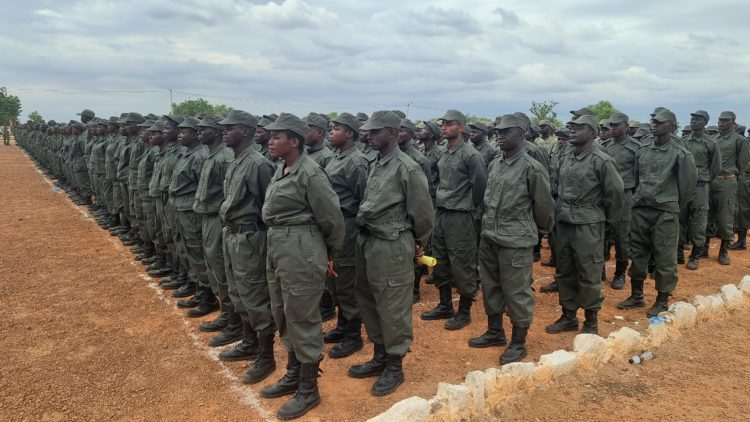Burkina Faso’s youth-led green revolution takes root in Badnogo

Badnogo, a quiet village in the heart of Burkina Faso, stirred to life on June 16 as 2,000 young agricultural entrepreneurs stepped forward—not just to farm, but to fuel a revolution.
These young men and women, aged between 18 and 40, are the first cohort of the Presidential Initiative for Agricultural Production and Food Self-Sufficiency (IP-P3A), a bold five-year programme championed by President Captain Ibrahim Traoré.
Wearing military fatigues and armed with agricultural tools, the recruits represent a new kind of force: patriotic farmers committed to ending hunger and restoring food sovereignty in Burkina Faso.
After three months of intensive training in modern agronomic techniques and civic education, they are now returning to their home communes—each allocated 0.5 hectares of fully serviced land with boreholes—to put theory into practice.
“We’re really eager to get going,” said Kientéga Souleymane from Boulkiemdé, his face glowing with pride and determination.
“We came empty-handed, but we’re leaving with our hands full.”
The IP-P3A, launched in July 2024 with a budget of over 120 billion CFA francs (about $200 million USD), aims to train 8,000 young people across 340 municipalities by 2029.
These efforts are projected to yield 52,000 tonnes of cereals and nearly 6,000 tonnes of tubers annually.
“This initiative is not just about farming,” said Battalion Commander Zida Ousséni, who oversaw the training.
“We are building dedicated citizens who understand their role in defending our homeland through food production.”
What sets this revolution apart is its inclusivity.
Among the 2,000 recruits are graduates, school dropouts, individuals with disabilities, and women—439 of them, making up nearly a quarter of the cohort.
One of the most inspiring figures is 22-year-old Guigma Abdoul Lawal Ayatoula, born with one arm and initially rejected from military training.
“Disability is in the mind,” he says, now standing tall as a fully trained farmer ready to feed the nation.
For 27-year-old mother of two, Yaméogo Basga from Pella, the programme represents a chance to “revolutionize her crops” and improve yields for her family and community.
And for Catherine Tengasogo from Pô, the transition from business to farming is a patriotic call: “We are ready to work body and soul for the nation.”
The initiative’s technical coordinator, Inoussa Ouédraogo, is optimistic: “These young people are capable of producing on any soil.
They will become true model producers in their communities.”
Experts agree. Dr. Edgar Traoré of INERA says the IP-P3A goals are achievable, citing Burkina Faso’s 9 million hectares of arable land and 1,000 water reservoirs.
Serge Auguste Zaongo, an industrial electronics engineer, believes smart irrigation and digital tools can revolutionize production, urging cooperatives to adopt shared, automated systems.
President Traoré’s message, delivered through Minister of State Ismaël Sombié, was unequivocal: “Other young people give their lives to defend the country.
You have a duty to feed it.” His rallying cry—work, competence, and loyalty—now echoes across fields rather than parade grounds.
For these 2,000 pioneers, the real ceremony begins not with medals or applause, but in the soil, where they are cultivating not only crops, but a future built on resilience, dignity, and national pride.
About The Author
dailymailafric
I am an avid African news observer, and an active member of Daily Mail Africa.
I’m Passionate about staying informed on diverse topics across the continent,
I actively contribute to publishing on political, economic and cultural developments in Africa.



